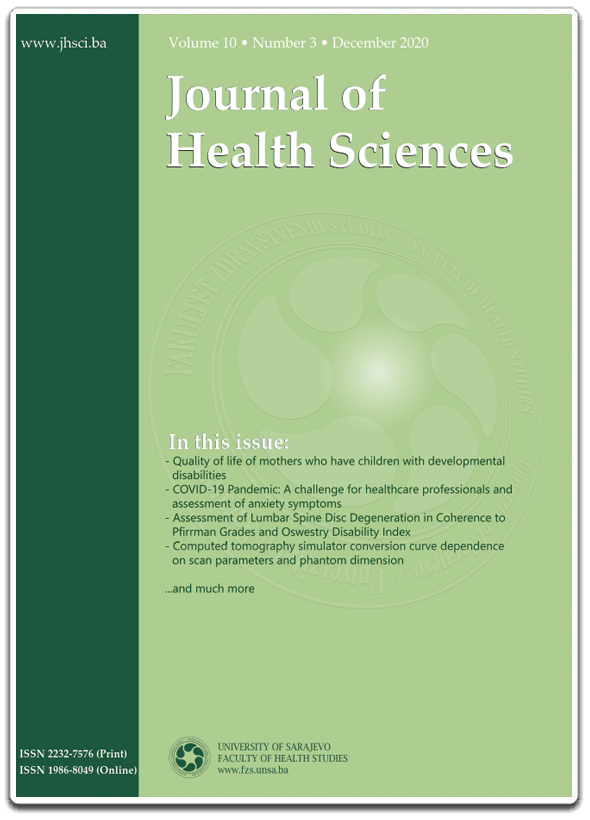Burnout syndrome in the banking sector of Bosnia and Herzegovina
DOI:
https://doi.org/10.17532/jhsci.2021.1504Keywords:
Burnout syndrome, banking sector, maslach burnout syndrome, job satisfaction, emotional exhaustion, depersonalizationAbstract
Introduction: Burnout syndrome in some European countries is recognized as an occupational disease. In the past time, it has been identified predominantly in the service sectors such as healthcare, social services, mental health and education, but later it started to be predominant in other occupations with high job requirements and time pressure. The aim of this study was to assess the presence of burnout at work among the bank employees of Sarajevo Canton, Bosnia and Herzegovina.
Methods: A cross-sectional study was conducted in banks (n = 6) located in Sarajevo Canton, Bosnia and Herzegovina, between January and April 2018. Employees filled out an anonymous questionnaire, after their written informed consent had been obtained. The study included employees regardless of their job positions and job seniority.
Results: The total number of surveyed employees was 260. There are not statistically significant gender differences (p = 0.854¸ p < 0.05) compared to the total Maslach Burnout Inventory (MBI) score. Statistically significant differences in relation to the total MBI score were observed in the examinees who have been working in the banking sector between 15 and 20 years (p = 0.04; p < 0.05) and examinees working temporarily <2 h/week (p = 0.016; p < 0.05), that is, more than 8 h/week (p = 0.015; p < 0.05). Mid value and standard deviation of the score in the subscale of emotional exhaustion (EE) is 26.26 ± 11.15, which shows that one third of the examinees are in high risk of EE.
Conclusion: We can conclude that less than one third of examinees are in high risk of burnout syndrome.
Downloads

Downloads
Published
License
Copyright (c) 2022 Zana Tafi, Alisa Smajović, Vanesa Škrijelj, Ramajana Temimović, Tamara Jovović Sadiković, Samra Poturak, Selma Karakaš-Osmanović, Sanja Brekalo Lazarević

This work is licensed under a Creative Commons Attribution 4.0 International License.










